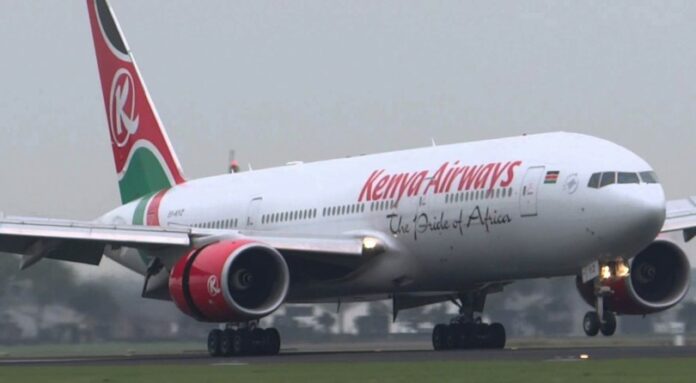KQ Ticket Refund: National carrier Kenya Airways risks paying up to Sh. 14 billion in ticket refunds. This follows a surge in the number of canceled flights over the last one year. The unused tickets represents 26.3 percent of the Sh. 52.8 billion revenue that KQ reported in the financial period up to December.
This piling figure is now set to force KQ to revise its financial projections downwards. According to a report that appeared in a local daily, KQ is now asking customers to accept vouchers which allow them to travel in future, while conserving the much-needed cash to remain afloat, instead of making refunds.
“In the current year, management have expressed significant judgments in relation to recognition of revenue on unused tickets in view of extensions in ticket expiries and refund options offered to passengers as a result of the Covid-19 disruption to the aviation sector,” a report by auditors, PwC said.
Why Kenya abandoned this KQ plane in Ethiopia
According to a report in the Business Daily, customers will have to weigh the pros and cons of accepting vouchers versus pressing for a cash refund. “The vouchers may have expiration dates and conditions such as who can travel using them – the original customer or members of his or her immediate family. Some airlines are luring customers to accept vouchers by offering a higher value than the ticket price. A customer who spent Sh. 100,000 on a ticket, for instance, can be offered a voucher worth Sh. 110,000,” the report said.
In March 2021, Kenya Airways (KQ) announced its worst ever annual loss. The national carrier said that it made a loss of Sh. 36.2 billion in the 2020 financial year. According to KQ chairman Michael Joseph, the outlook for the national carrier still looks bleak and the airline will be seeking a right-sized network to match the prevailing demand.
The airline says that passenger revenue dropped by 67.5 per cent to Sh. 33.7 billion as passenger numbers reduced by 65.7 per cent to 1.8 million.
“Approximately 70 per cent of the total passengers carried in 2020 were flown during the first three months of the year, demonstrating the drop in demand as the global crisis deepened during the year,” said Mr Joseph.









